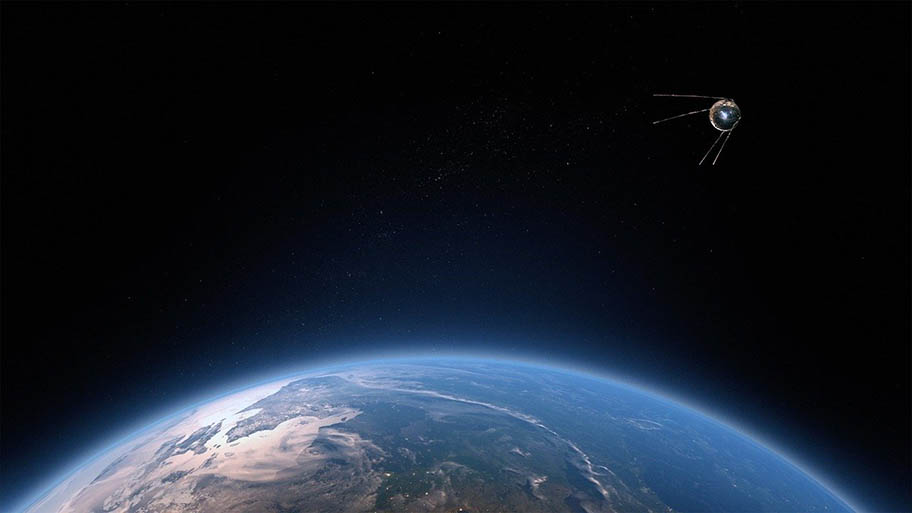The Gravity Challenge is an international technology innovation programme that brings together challenge providers, such as the MSC, and innovators, such as entrepreneurs, universities, start-ups and SMEs, to collaborate and create solutions to some of business and society’s biggest challenges using space data and capability.
For the MSC, protection of our oceans from unsustainable fishing requires accurate tracking of every boat trip. However, for smaller fisheries, proving they are not in the wrong place at the wrong time can be difficult and hinder their chances of certification.
So, we’ve asked innovators to come up with a solution to this potential barrier through the use of space technology with the Gravity Challenge hackathon.
Meeting the sustainability benchmark
To become certified as sustainable, fisheries must have strong monitoring systems that show they stick to management and environmental rules. This includes providing data that they are respecting marine protected areas and ‘no take’ zones.On industrial vessels, this spatial data is usually provided by technologies such as Vessel Monitoring Systems (VMS) and Automatic Identification Systems (AIS), or ‘black boxes’. But this expensive technology is not usually installed on smaller vessels, which includes the majority of those operating near shore or in freshwater fisheries. And even on vessels that do have it, the data may not be good enough if it is too coarse or has been redacted because of commercial sensitivity.
Affordable solutions
Having an independent observer on board is one way of ensuring compliance. But – even if there is room on board for another person – employing someone else in such an environment is too expensive for many fishers. Successful trials of electronic monitoring systems in small-scale fisheries have shown that proving compliance is achievable, but only if the technology is affordable.One possible way forward could be to use space sector technology. No longer the preserve of space agencies like NASA, space capabilities are increasingly accessible and affordable due to miniaturisation of satellites and access to data via cloud technologies. Many of us already carry phones communicating with GPS satellites and accessing unimaginable amounts of data.
No time to waste
Safeguarding marine ecosystems and feeding the world means we need effective fisheries management, but currently over a third of global fish stocks are overfished. It is estimated that 1 in every 5 fish caught is affected by Illegal, unreported and unregulated (IUU) fishing, at a cost of $23 billion every year.Helping sustainable fishers show they are compliant with all aspects of regulation – including spatial management measures – is vital if we want consumers to make an informed choice about the fish they buy.
In August, the MSC teamed up with Deloitte and Amazon Web Services, organisers of the Gravity Challenge, to pose our challenge to innovators who can leverage the space capabilities of Amazon Web Services and Deloitte.
Making certification accessible to all fisheries
The challenge commenced with 50 innovators submitting proposals to solve some of society's biggest problems. Previous challenges have used satellite data to find new ways of predicting wildfire risks in Australia. Others focused on how to optimise shipping routes to minimise greenhouse gas emissions and avoid sensitive habitats, such as the blue whale aggregations off Sri Lanka.MSC's challenge asked for an affordable alternative to traditional vessel-based monitoring systems. The solution had to be accessible to artisanal fishers in the Global South and make use of existing technology and infrastructure where possible.
We’re committed to provide equal access for all fisheries wanting to become MSC certified. That includes finding new ways to make our program accessible to well-managed fisheries even if they have limited scientific data. Consumers who choose the blue label support this by funding the MSC’s Ocean Stewardship Fund which supports fisheries at all stages of development, from those starting on the pathway to sustainability to MSC certified fisheries with longstanding commitments to sustainability.
A space for collaboration
After an exciting four months of collaboration with the innovators, it was announced that FisherSpotter and AMTD Electronics successfully reached the final phase of the MSC’s challenge.
FisherSpotter’s idea consists of installing a low-cost GPS logger and tracker on boats, one that builds on already available robust and saltwater-friendly technology used to track whales. GPS signals ping at regular intervals to confirm a vessel’s location and provide a means for fishers to send out a distress signal in an emergency. Many small-scale fishers put themselves in danger when they are far off-shore with no means to contact their home-base. The emergency beacon can help reduce this risk and incentivise fishers to install the devices.
AMTD Electronics developed a low-cost, low-power device that uses short-range Bluetooth capabilities to connect with a mobile phone for authentication and communication of GPS data. Tracking modules installed on boats would help monitor the movements of vessels inside fishing-restricted zones. This data may also be made available to the fishers themselves, helping them better understand their environment and support data-driven decisions.
We’ll be working closely with both innovators to help further develop their ideas to monitor sustainable fishing compliance. It’s been inspiring to work with such forward-thinking organisations and investigate how space data could really benefit our oceans, here on Earth.


